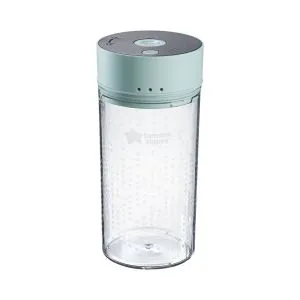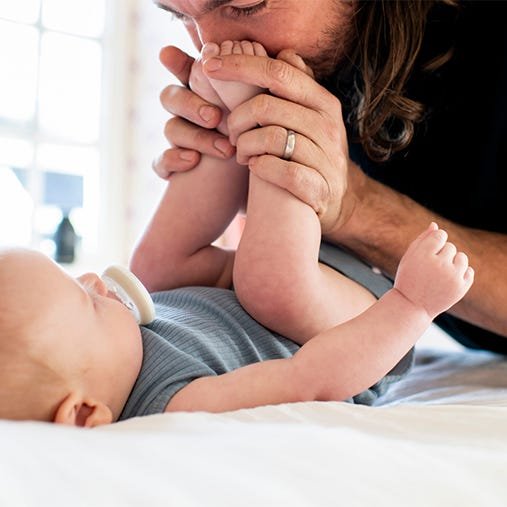At first, your baby will be busy doing 3 things (and 3 things only). Eating, sleeping, and pooping.
The sheer number of nappies they’ll go through is impressive.
Newborn poop isn’t like its adult counterpart, which means it can be hard to figure out if your baby’s poop is ‘normal’.
We’ve created this guide to answer the most asked questions about newborn baby poop, so you can spot what’s normal, and what’s not.
(You’ll be an expert in no time!)
How often should newborns poop each day?
When it comes to baby poo, there isn’t a magic number.
On average though, babies have around 4 poops a day in their first week of life. Commonly this will decrease to around 2 poops per day by their first birthday.
Breastmilk is considered a natural laxative, and breast-fed babies may poop at every feed for the first few weeks! Thankfully, this 'in and out' phase won’t last long, and they might not poop for several days after the 6-week mark.
Formula-fed newborn babies can poop up to five times a day, reducing to as little as once a day after a few months.
This all sounds like too much poo to handle, but you’ll find your rhythm with nappy changes before you know it! Some babies are tiny pooping machines, while others can go a few days without pooping at all.
If your baby seems happy and is eating well, chances are things are fine (even if you feel like you’re up to your elbows in dirty nappies).
However, you should always trust your gut. If you think something’s not right, or you have concerns about their bowel movements, you should speak to a GP, midwife or doctor.
Newborn poop stages
Your baby’s poop will change a lot in the first few weeks (keeping you on your toes!). The colour and consistency may vary from day to day, as their digestive system develops.
We’ve created a mini timeline to make things easier:
Meconium: Within 48 hours
Meconium is your baby's first poop and it's already in the bowel at the time of birth.
Dark, thick and tarry, meconium can be sticky and very hard to clean up. Meconium contains cells and other substances that line your baby’s digestive tract during pregnancy. This kind of poop usually subsides after three or four days.
You should speak to a medical professional if your baby hasn’t passed any meconium 48 hours after birth.
Green poop: Day 3-4
If their poop changes to a greenish color, it’s usually because the last of the meconium is leaving their bowels. During this stage, their poop is still dark but develops a green tinge, as they start to digest milk.
Yellow poop: Day 5-6
From around day 5, your baby's poop might look like it has seeds in it. Newborn poo at this stage is usually runny, but not very smelly.
If your baby is formula-fed, their poop may have a slightly darker tan shade and might be a bit smellier!
Newborn poop types
Breast, bottle, or a bit of both, your baby’s diet will impact their bowel movements. Let’s take a quick look at some of the most common factors affecting your newborn’s poop.
Your baby is primarily breastfed
After the meconium has passed, your baby's poop will change first to a lighter green-black colour, and then to a yellow hue (it can be quite bright in colour).
The texture will change too, from sticky to grainy, even loose. It should be soft and easy to pass. The biggest surprise for new parents is often the smell, as it is far sweeter than you might anticipate - a breastfeeding bonus!
Your baby is primarily bottle-fed
It's a little more difficult for a baby to digest formula than breast milk. You’ll see this in some small differences between their poo. Bottle-fed baby poop is likely to be bulkier than breastfed baby poop. Colour-wise, you can expect the poop to be a paler yellow or yellowish brown (and smellier!).
Your baby is eating solid foods
This one’s a big change!
With solid foods, your baby's poop will now become larger, thicker, and (inevitably) smellier.
You may notice that different foods affect their poop differently. Sometimes you'll see the color of the poop reflect what you've given your baby to eat. You may also notice certain hard-to-digest foods pass straight through. This will change in time, as your baby gets used to different food types. In the meantime, you'll have fun guessing what those weird little black flecks are (HINT: it's probably that banana).
Jet-propelled poop
Yes, your baby can achieve some real force behind that poop! Don't be surprised if a poop you've waited longer than usual for, makes its way out of their nappy.










